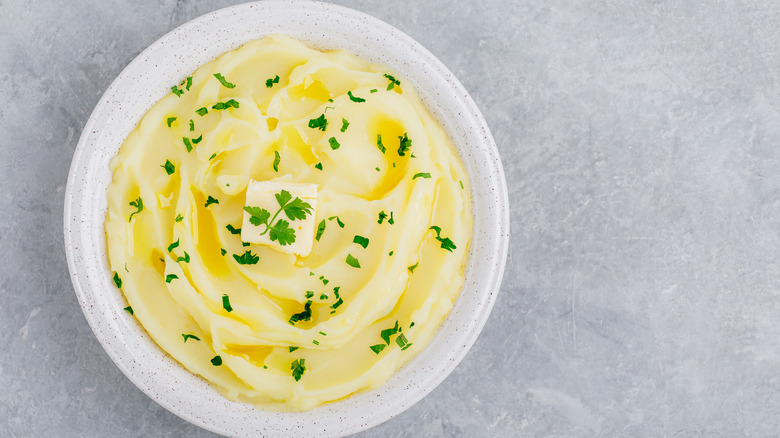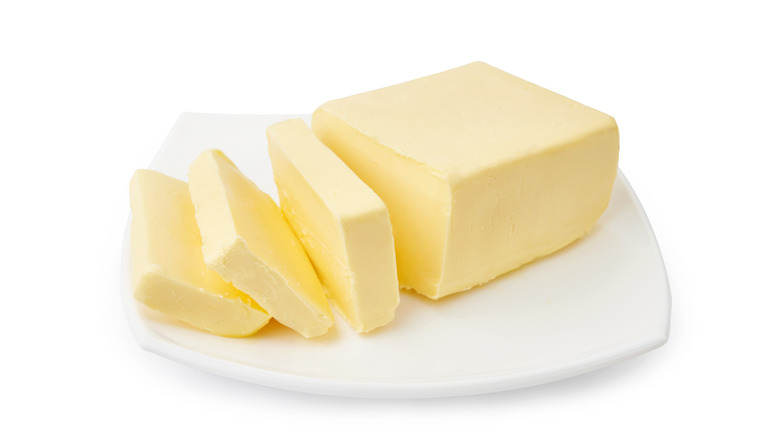What Type Of Butter Should You Use For Mashed Potatoes?
Comfort foods run rampant across the United States. From chicken-fried steak and old-fashioned beef stew to smothered pork chops and smoke-brined turkey, these hearty classics typically pair well with tasty spuds as the sidekicks. The humble potato is known to many home cooks and chefs for being versatile in its preparation. Side dishes like French fries, potato salads, and potatoes au gratin are whipped up daily to complement other main dishes. But of all its creative uses, mashed potatoes are quite possibly the only side dish that is fluffy, creamy, and buttery in a simultaneous fashion. And that last part, buttery, is pretty important.
Mashed potatoes are primarily comprised of both potatoes and butter. Other additions like pesto sauce, cream cheese, roasted garlic cloves, and herbed goat cheese (per Montana Happy) may be incorporated, but they don't provide the basis for that rich and melt-in-your-mouth flavor distinct in mashed potatoes. So to that end, it's crucial to use a certain kind of butter since that's what you're mainly tasting within the potatoes.
But which kind?
According to Kitchn, high-quality unsalted butter should be your go-to when whipping up mashed potatoes. Using unsalted butter decreases the risk of accidentally over-salting mashed potatoes; in other words, you have more control over how much salt to add since unsalted butter provides a single base: buttery (not salted buttery).
Some recipes don't specify what butter to use but note how much salt to add. For example, you might see a mashed potato recipe that calls for 6 tablespoons of butter and 1 teaspoon of salt. If you're using salted butter, that extra 1 teaspoon of salt might make the mashed potatoes inedible for certain palates. Thus, it's best to go with unsalted butter to avoid such mishaps.
Kitchn also suggests using the best quality of butter your budget allows. In short, high-quality butter translates to high-quality mashed potatoes. Taste of Home states that unsalted butter is typically fresher than its salted counterpart because it doesn't contain any salt. Because of its shorter shelf life, supermarkets rotate unsalted butter out faster than salted butter (per Taste of Home).
In terms of the taste, unsalted butter tastes more like "natural butter," per MasterClass. Since it doesn't have any salt to hide behind, it has heightened "sweet cream" flavors that are smoother in texture.
So next time you want to take your mashed potatoes to the next level, reach for unsalted butter. It tastes more natural and puts you in control of salt levels.

